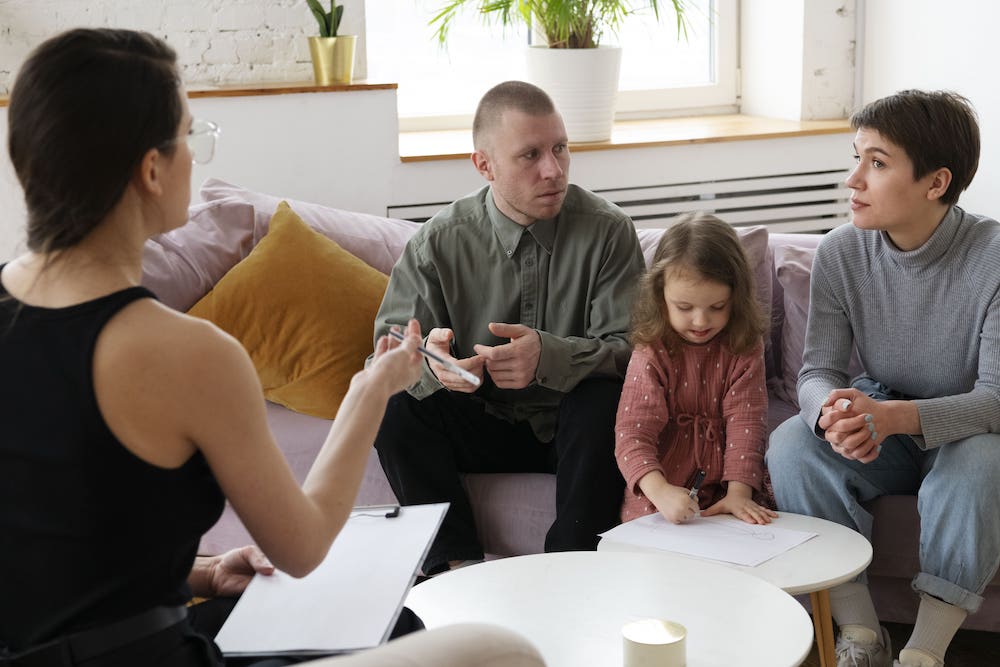
Family therapy is a unique tool that relatives can use to explore their interpersonal relationships and understand the impact that their behavior may have on others. Whether your family is dealing with a traumatic event or simply looking to improve communication and understanding with each other, this therapeutic tool can be a fantastic resource for any family.
What is Family Therapy?
Family therapy is a one-of-a-kind process that helps families understand and improve their relationship with each other. This therapeutic system generally focuses on exploring the different relationships that make up the family system and helping each member understand the ripple effect their actions may have on the rest of the family.
Through the years, this therapy has remained one of the best ways for families to resolve conflicts, deal with traumatic events, and mend broken relationships. So, if you are in this boat and believe your family may benefit from this process, we suggest reaching out to a family therapist near you.
Family Therapy Approaches
Structural Family Therapy
This approach focuses on exploring the various roles in the family and what impact these roles have on different members. The core goal of this approach is to restructure the family to help improve communication.
Behavioral Family Therapy
Behavioral therapy tends to focus on how various family members act toward each other. With this approach, the core belief is that by changing or altering these behaviors, a therapist can help mend broken relationships and provide healing within the family.
Systemic Family Therapy
Systemic therapy focuses on looking at the family as one unit rather than as individual members. This approach explores how the various parts of the system interact and what changes the family can make to help ensure a smoother relationship.
Other family therapy approaches include:
- Strategic Therapy
- Narrative Therapy
- Transgenerational Therapy
- Communication Therapy
- Cognitive Behavioral Family Therapy
Advantages and Disadvantages of Family Therapy
Like any therapeutic process, there are benefits and limitations of family therapy. Before diving into this approach, we always recommend exploring the pros and cons of this method and considering whether it will benefit your family in the long run.
What are the Benefits of Family Therapy?
There are various advantages of the family therapy approach that you should be aware of.
Better Communication
There is hardly a better tool for families struggling to develop a meaningful line of communication than therapy. Through this process, members of your family should be able to learn how to express their thoughts purposefully and show more empathy to other relatives. Once communication becomes as clear as a bell, you should notice fewer misunderstandings and conflicts between each other.

Trades Negative Patterns for Positive Ones
With the help of a therapist, families can look into any negative patterns that may be holding the collective back, such as individuals playing the blame game or members showing a lack of trust in each other. Once these patterns are out in the open, you and your family can learn new ways to interact with each other and create more positive relationships.
Helps With Conflict Resolution
One of the core family therapy benefits is that it can help teach the entire family how to resolve conflicts in a way that benefits everyone. This approach to conflict resolution generally works by teaching each family member how to solve problems effectively. With this tool in your arsenal, it should become easier to explore the root cause behind any issues and resolve them without breaking a sweat.
Creates a Strong Sense of Family Identity
If you believe that your family lacks a strong sense of union or identity, then family therapy can be a way to boost this bond. Depending on the level of connection your family has, this can be as easy as reminding your relatives of the values that you all share. However, in other cases, you and your family may have to work on building your bond by setting out family traditions, such as “Movie Nights” every Thursday. By creating a ritual that everyone partakes in, you and your family can craft a more powerful intersection with each other.
It Aids in Uncovering Underlying Issues
By exploring your relatives’ thoughts, feelings, and emotions, a therapist can help uncover any persistent issues affecting how your family functions. Once these issues are out in the open, your relatives should all have a better understanding of themselves and other family members, leading to a healthier relationship.
It Exposes Everyone’s Needs
One of the core reasons why family members often fail to develop strong bonds is that they struggle to place themselves in other people’s shoes. Naturally, this often leads to scenarios where some family members sacrifice more than others. Fortunately, with family therapy, everyone will be free to air their grievances, which should help create a clean slate that promotes mutual respect and love.
What are the Limitations of Family Therapy?
While family therapy can have fantastic benefits, it may not always be the best solution.
It Needs All Hands on Deck
It will always be challenging to gain the benefits of family therapy without everyone participating. Naturally, this need for having all hands on deck means that you will have to get all your family members to attend all the sessions, which may be a huge hurdle.
Some Family Members May Not Be Comfortable Airing out Their Thoughts
Unlike personal therapy, family therapy often lacks the privacy of a one-on-one session, as members often share thoughts with the entire family. This lack of discretion may mean that certain family members may be uncomfortable sharing their thoughts, feelings, and grievances during the sessions.

What to Expect from Family Therapy?
During your therapy sessions, each family member will get the chance to share their thoughts and feelings with the rest of the family. Your therapist will also help everyone explore how their behaviors impact others and how to form stronger bonds with each other. This approach allows you to see everyone’s perspectives and work on how you can create healthier relationships within the family.
Finding the Right Therapist for Your Family
Experience Matters
Family therapy is tremendously different from other forms, so it is always crucial that you pick a practitioner with a long history of helping families build better bonds.
Ensure Their Schedule Matches With Your Family’s Calendar
We always suggest doing as much as possible to ensure that each family member can fit their sessions into the day without much hassle. So, before signing on with a therapist, be sure that everyone will be able to attend all sessions.
Ask for a Consultation Meeting
Before bringing your family over, we recommend asking for a consultation with a therapist beforehand. During this meeting, you can share your thoughts on your family’s needs and also get a good sense of whether the therapist can help you achieve your goals.